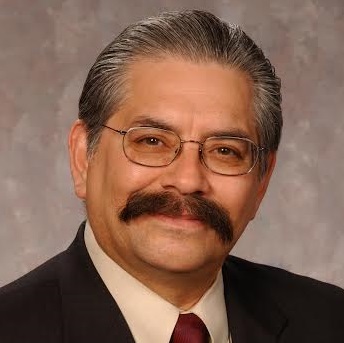By Bob Allen
A Texas Baptist official bemoaned a school voucher vote in the state Senate and supported a House measure to protect clergy from being forced to officiate over same-sex marriages in recent debate at the Texas State Capitol in Austin.
The Texas Senate voted April 20 to approve a bill creating tax incentives for businesses that donate money to fund scholarships for private schools. SB 4, approved by an 18-12 vote, was opposed by public school teachers and religious groups including the Baptist General Convention of Texas.
The bill, sponsored by Republican Sen. Larry Taylor, a Baylor University graduate and active member and deacon at First Baptist Church of Friendswood, Texas, is part of Lt. Gov. Dan Patrick’s school choice agenda. The measure faces an uphill battle in the House, where even Republicans have resisted previous voucher plans.
 “We are disappointed that SB 4 passed the Senate, but we are hopeful that the Texas House will choose a different course of action,” said Gus Reyes, director of Texas Baptists’ Christian Life Commission.
“We are disappointed that SB 4 passed the Senate, but we are hopeful that the Texas House will choose a different course of action,” said Gus Reyes, director of Texas Baptists’ Christian Life Commission.
Charles Foster Johnson, executive director of Pastors for Texas Children, called it “spectacularly bad legislation” that would further weaken an already underfunded public school system.
Johnson, a longtime pastor of Baptist congregations including Trinity Baptist Church of San Antonio, became involved in advocating for children in public schools in 2008 at the request of Suzii Paynter, then executive director of the Texas Baptist Christian Life Commission and now executive coordinator of the Cooperative Baptist Fellowship.
Johnson represented Texas Baptists in an organization called the Coalition for Public Schools in Austin. He served as co-chair of the organization for the 2011 and 2013 legislative sessions, and in July 2013 formally launched Pastors for Texas Children, a nonprofit ministry and outreach group comprised of pastors and church leaders to support quality public education opportunities for all Texas children.
Reyes, former director of affinity ministries and Hispanic Education Initiative for the BGCT named to succeed Paynter at the CLC in January 2014, testified April 22 before the Texas House State Affairs Committee in support of legislation to protect the rights of religious organizations and individuals that refuse to perform or to recognize a gay marriage.
Reyes said Christians “function within the laws of our land,” but hold certain beliefs “that the majority may not like.”
“True religious freedom is not needed much by those who hold views supported by the majority of people,” Reyes said. “Religious freedom is needed most by those who hold views that are in the minority.”
Kris Segrest, lead pastor of First Baptist Church in Wylie, Texas, and Kyle Henderson, senior pastor of First Baptist Church in Athens, Texas, also spoke in support of the measure backed by Texas Values, a conservative public-policy group associated with Focus on the Family and recognized by the Family Research Council.
The bill, introduced by Rep. Scott Sanford, a Republican legislator who also serves as executive pastor of Cottonwood Creek Baptist Church in Allen, Texas, states: “A religious organization, an organization supervised or controlled by or in connection with a religious organization, an individual employed by a religious organization while acting in the scope of that employment, or a clergy or minister may not be required to solemnize any marriage, provide services, accommodations, facilities, goods, or privileges for a purpose related to the solemnization, formation, or celebration of any marriage, or treat any marriage as valid for any purpose if the action would cause the organization or individual to violate a sincerely held religious belief.”
Religious liberty and gay-rights groups oppose the bill, saying the U.S. Constitution already protects clergy from performing marriages that conflict with their religious beliefs. Opponents say the bill goes further, giving religiously affiliated entities like hospitals and child welfare organizations authority to discriminate against families.
On April 27 the Texas Freedom Network, ACLU of Texas and Equality Texas wrote a letter to legislators suggesting compromise language used in other states — most recently, Utah — to “ensure that clergy and houses of worship are completely shielded, but without unintended consequences.”
— With reporting by Ken Camp of the Baptist Standard.
